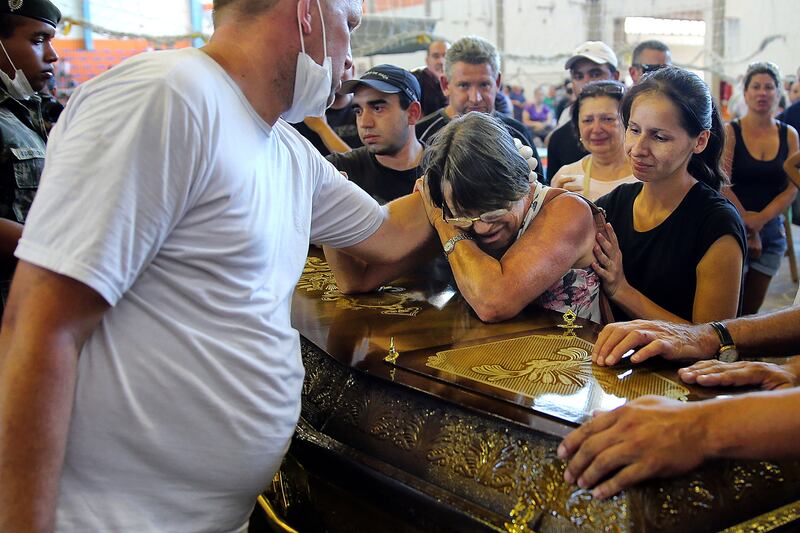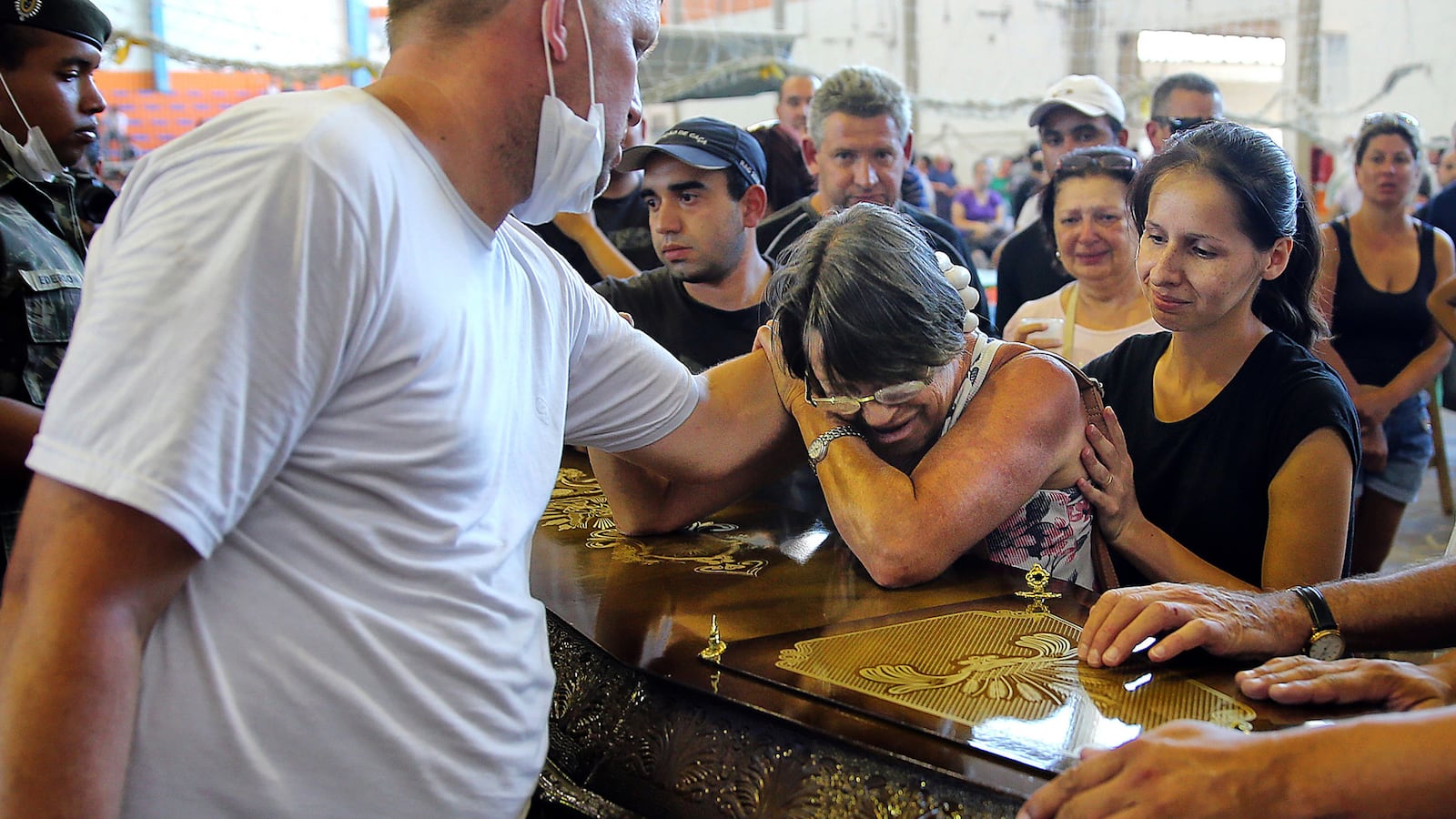Shock gave way to grief and anger this morning as police investigators continued to comb the debris of a deadly blaze in Santa Maria, the town in southern Brazil where a discotheque went up in smoke early Sunday, killing 231 and injuring scores more—the country’s worst fire in half a century.
As relatives and friends of the victims buried their loved ones in dozens of funeral processions across the southern state of Rio Grande do Sul, questions over lack of emergency safeguards and possible criminal negligence swirled as thick as the black smoke that poured from the nightclub in the predawn hours yesterday.

Police have made three arrests, they said Monday, of the owner of the nightclub and two members of the band that was performing at the time. A fourth warrant was issued for another owner of the club.
In a written statement, the nightclub owners expressed condolences to grieving families over the fire, which they described as a “fatality.” But survivors told police and reporters a different story, describing the club as a firetrap. Several witnesses said the club lacked emergency lighting and a sprinkler system and was badly overcrowded, operating at double the maximum 500-customer capacity at the time of the blaze.
Worse, as panicked patrons fled the spreading fire, some told of being blocked at the lone exit by security guards demanding that they settle their bills before leaving, a routine measure at Brazilian clubs that proprietors employ to impede freeloaders. One security guard reported that the fire extinguisher failed to work when he tried to douse the flames.
The club, known as a popular nightspot for university students, apparently had failed to renew its operating license, which reportedly expired last August.
“We go out to have a good time, thinking we will be safe, and then something like this happens,” Isamara Alberici, a relative of one of the victims, told a television reporter this morning, fighting tears.
Shock and disbelief coursed through this country of 195 million as video footage of the blaze and its chaotic aftermath flooded television networks and social media. “This is a tragedy foretold,” intoned O Globo, Rio’s largest daily.
President Dilma Rousseff interrupted a regional economic summit in Santiago, Chile, flying back to Rio Grande do Sul, where she had spent her college years and began her political career. Visibly shaken, her face streaked with tears, Rousseff embraced the parents of the victims, but avoided assigning blame in what Brazilian media have dubbed “the tragedy of Santa Maria.” She enjoined all Brazilians to reach out to the grieving families, declaring that “we will—because we must—overcome this” tragedy.
Messages of solidarity and condolence streamed into Brazil from scores of officials and celebrities, from United Nations Secretary-General Ban Ki-moon to Lady Gaga. “My heart is with you Brazil,” the pop singer posted on her Twitter account.
More than 80 people injured in the fire remained hospitalized yesterday, many on respirators. Firefighters reported that 90 percent of the fatalities were due to asphyxiation, as victims were overcome by toxic fumes released during the three-hour blaze.
The fire broke out around 2:30 a.m. Sunday, when the vocalist from Gurizada Fandangueira, a local pop band, raised a handheld flare, sending a shower of sparks to the ceiling, said to be covered with flammable acoustic foam. Many in the crowd reportedly first mistook the flames flickering above the stage as part of a pyrotechnic display. Then panic set in as flames rapidly engulfed the ceiling and filled the discotheque with black smoke.
Dozens of frightened clients ran to the double exit doors, only to be barred by a wall of security guards, who according to some witnesses apparently mistook the panic for a scuffle. Even those who managed to charge past security told investigators that the exits were blocked by tables and that the doors were barred shut and had to be broken down. The twisted metal doorframes hanging from the club’s exit are a chilling glimpse into the despair and panic that had seized the crowd just hours before.
So was the gaping hole that firemen and volunteers bashed out of the concrete walls yesterday morning to empty the windowless nightclub of smoke and help the trapped partygoers escape. Dozens of victims suffocated to death in the unventilated restrooms where they had huddled, hoping for shelter against the spreading smoke and flames.
As firefighters scrambled to control the fire, medical rescue workers tried to revive the injured on the pavement or on street benches. Again and again, civil-defense teams hoping to find survivors found bodies instead, eventually deploying three refrigerator trucks to carry the dead to a municipal gymnasium.
The Santa Maria tragedy is the third-deadliest nightclub fire on record, after a 1942 blaze in Boston, where 492 died, and a 2004 conflagration in China that took 309 lives.
It is the worst fire-related tragedy in Brazil since 1961, when a circus big top caught fire in Niterói, across the bay from Rio de Janeiro, killing 503.






